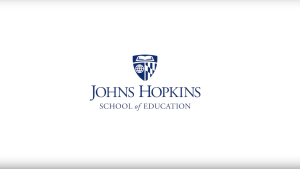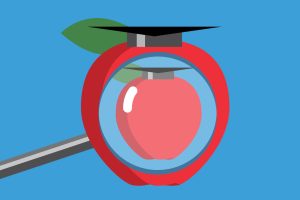Application Details
Prerequisites to Apply
Applicants are required to hold an advanced degree (master’s or higher) in the health professions or a related field from a regionally or nationally accredited college or university. All degrees and coursework at both the undergraduate and graduate levels (including incomplete programs of study and/or programs still in progress) must reflect a minimum GPA of 3.0 on a 4.0 scale.
Application Requirements and Deadlines
| Education in the Health Professions | |
|---|---|
| Application Deadline | July 15, 2026 |
| Application Requirements |
|
| Online application form | |
| $80.00 application fee | |
| Resume/CV |
|
| Essay: A 500-word essay discussing the reasons you wish to pursue a degree at Johns Hopkins University, focusing on your long-term goals and how your academic program will complement those goals. Discuss the strengths and weaknesses in your academic background, as well as any additional comments that will assist in evaluating your application materials. Essays should be submitted in a typed format on a separate sheet of paper. |
|
| Two letters of recommendation | |
| Official transcripts from all post-secondary institutions attended. | |
| Interview: Interview is required. Applicants who meet admission requirements will participate in an interview (in-person, online, or phone) to ensure that their goals align with the goals of the program prior to an offer of admission. | |
Tuition and Fees
Tuition and fees are subject to change for ensuing academic years and will be updated on the School of Education website accordingly.
Financial Support Options
The Johns Hopkins School of Education offers a range of financial aid options, including grants, scholarships, federal loans, and work-study programs, to help you fund your education.
Admissions Webinar

More Information
Baltimore, MD 21209
Suite M-500
What to Expect
Mission Statement
The mission of the Master of Education in the Health Professions is to globally transform education in the health professions through the effective interprofessional preparation of its future leaders and change agents.
Goals
The goals for the MEHP program are to:
- Develop exemplary interprofessional educators for the health professions who effectively integrate adult learning theory, evidence-based teaching and curriculum development, reflective practice, hypothesis-driven approach to instruction, appropriate technologies, and assessment into their practice and who share their discoveries
- Prepare competent researchers of health professionals’ education who design studies based on sound educational research methodology, implement them appropriately, analyze results and apply findings, and prepare their work as publishable papers
- Prepare effective educational leaders for the health professions who demonstrate effective management and leadership of educational programming, create appropriate professional development opportunities, advocate for interprofessional collaboration, mentor and evaluate performance, secure support for education of health professionals, lead education-related change initiatives, and share their discoveries
Student Outcomes
Graduates of this program are exemplary teachers who:
- Apply evidence-based strategies and methodologies to teach in a variety of settings
- Know how to use the assessment of learner needs in order to differentiate instruction
- Provide interdisciplinary learning experiences
- Incorporate their knowledge of standards and standards-based instructional approaches to teaching
- Know collaborative and clinical teaching models
- Demonstrate multiple approaches to assessing student learning achievement
- Effectively integrate technology into instruction
- Demonstrate understanding of adult learning principles, theory, and development
- Function as reflective practitioners
- Know how to design, implement, and evaluate curriculum
- Demonstrate a commitment to diversity in teaching
- Advise students effectively
Are effective researchers who:
- Interpret educational research and use it to inform decisions regarding teaching and learning
- Design educational research studies and implement the components, including seeking IRB approval
- Analyze data using appropriate educational statistics
- Design educational research studies to provide empirical evidence on the effectiveness of knowledge transfer
- Analyze empirical data to support the theories of effective teaching and adult learning theory
- Disseminate their findings and are sought out as experts
Are leaders in their respective disciplines who:
- Mentor less-experienced professionals in their institution
- Demonstrate the ability to build professional development opportunities and programs
- Evaluate professional development programs
- Are effective change agents in their organizations
- Demonstrate a commitment to interprofessional education
- Appreciate the contributions of various health professions
- Demonstrate negotiation skills
What is medical or health professions education?

Medical education or health professions education is a field of study focused on training and developing healthcare professionals.
Health professions education refers to the field of study and practice focused on training and developing healthcare professionals, including doctors, nurses, pharmacists, therapists, and other allied health personnel. It involves designing and implementing effective educational programs, curricula, and teaching methodologies to prepare healthcare providers for their roles in clinical practice, research, and patient care.
What is the time commitment per week for a master's in health professions education?

The weekly time commitment depends on your chosen pace of study.
Students who complete the program in about two years typically spend 18–20 hours per week on coursework, while those who follow a more flexible schedule and graduate in four to five years generally spend 8–12 hours per week. This allows you to choose a pace that best fits your professional and personal responsibilities.
What can you do with a master's in health education?

With a Master of Education in the Health Professions, you can pursue a variety of career paths.
With a Master of Education in the Health Professions from the Johns Hopkins School of Education, you can pursue a variety of career paths in the fields of public health and health promotion such as health educator, community health program coordinator, public health specialist, health promotion specialist, or wellness program manager.
Why is continuing medical education important for healthcare professionals?

There are many benefits of continuing education for healthcare professionals.
Continuing education for healthcare professionals offers several benefits, including staying updated with the latest advancements and research in their field, maintaining licensure and certifications, improving patient care and outcomes through enhanced skills, and opening opportunities for career advancement and specialization.
International Applicants
This program is delivered in a fully online format and does not offer F-1 or J-1 visa sponsorship for international students. Academic transcripts for degrees conferred by non-U.S. institutions are required to be evaluated for their equivalence to similar degrees earned in the U.S. — see credential evaluations. Physicians who have completed ECFMG certification may submit a copy of the ECFMG certificate in lieu of the course-by-course evaluation to satisfy this requirement for their medical degree.
International Student Admissions
Please visit the International Student Admissions webpage for additional application requirements or information.


International Student Admissions
Please visit the International Student Admissions webpage for additional application requirements or information.


Legal Disclosure
Master of Education in the Health Professions
Students should be aware of additional state-specific information for online programs.